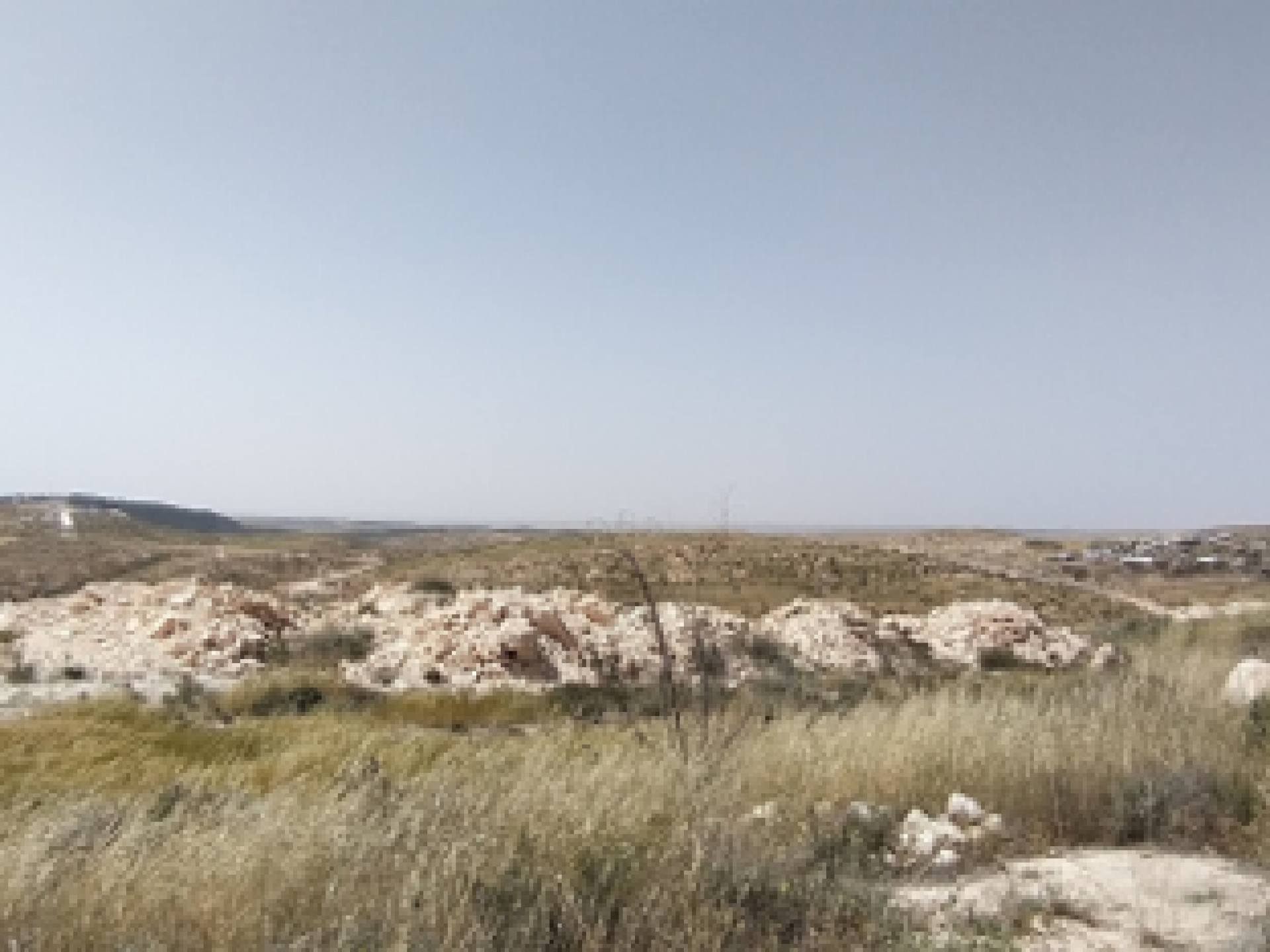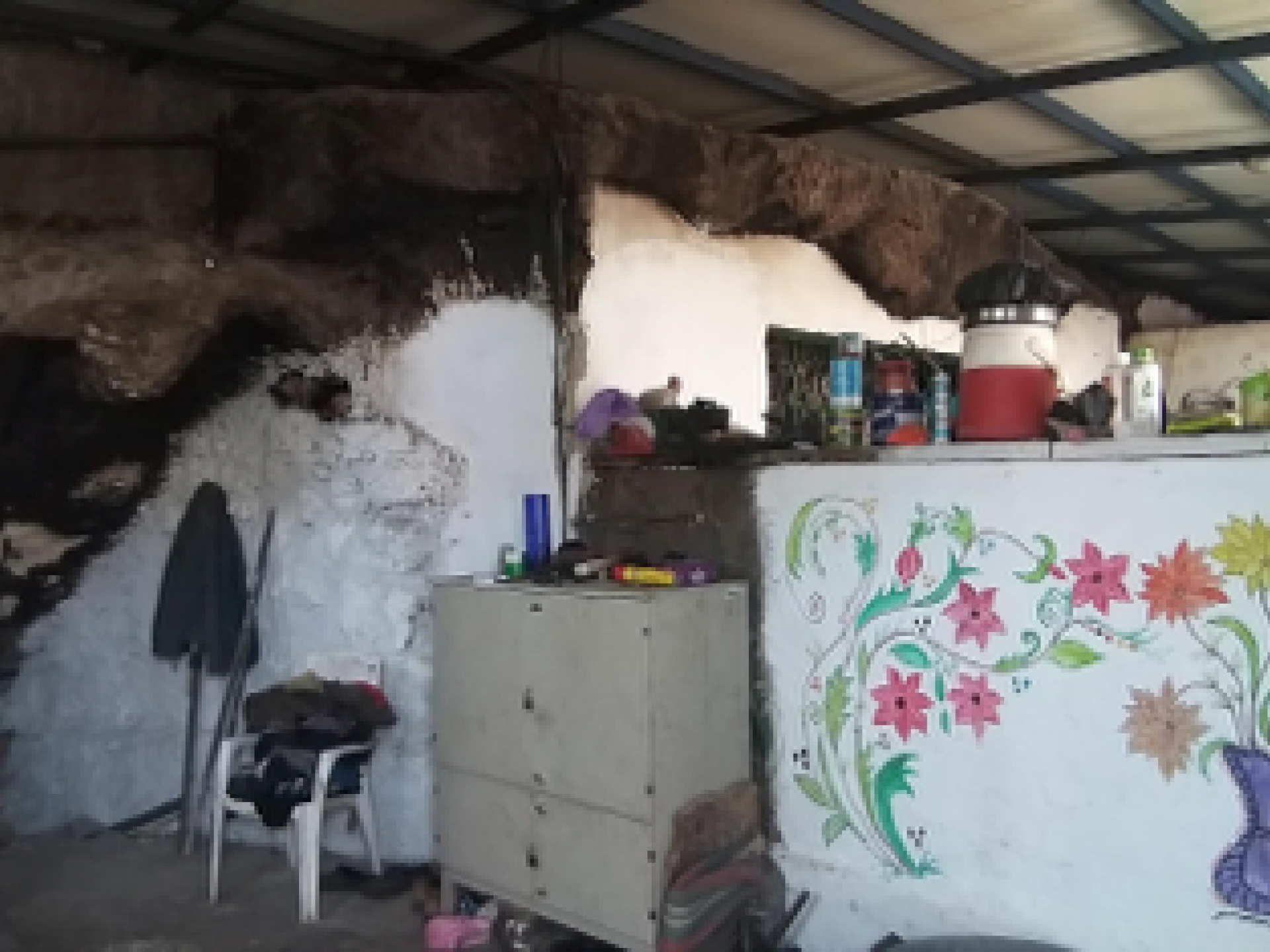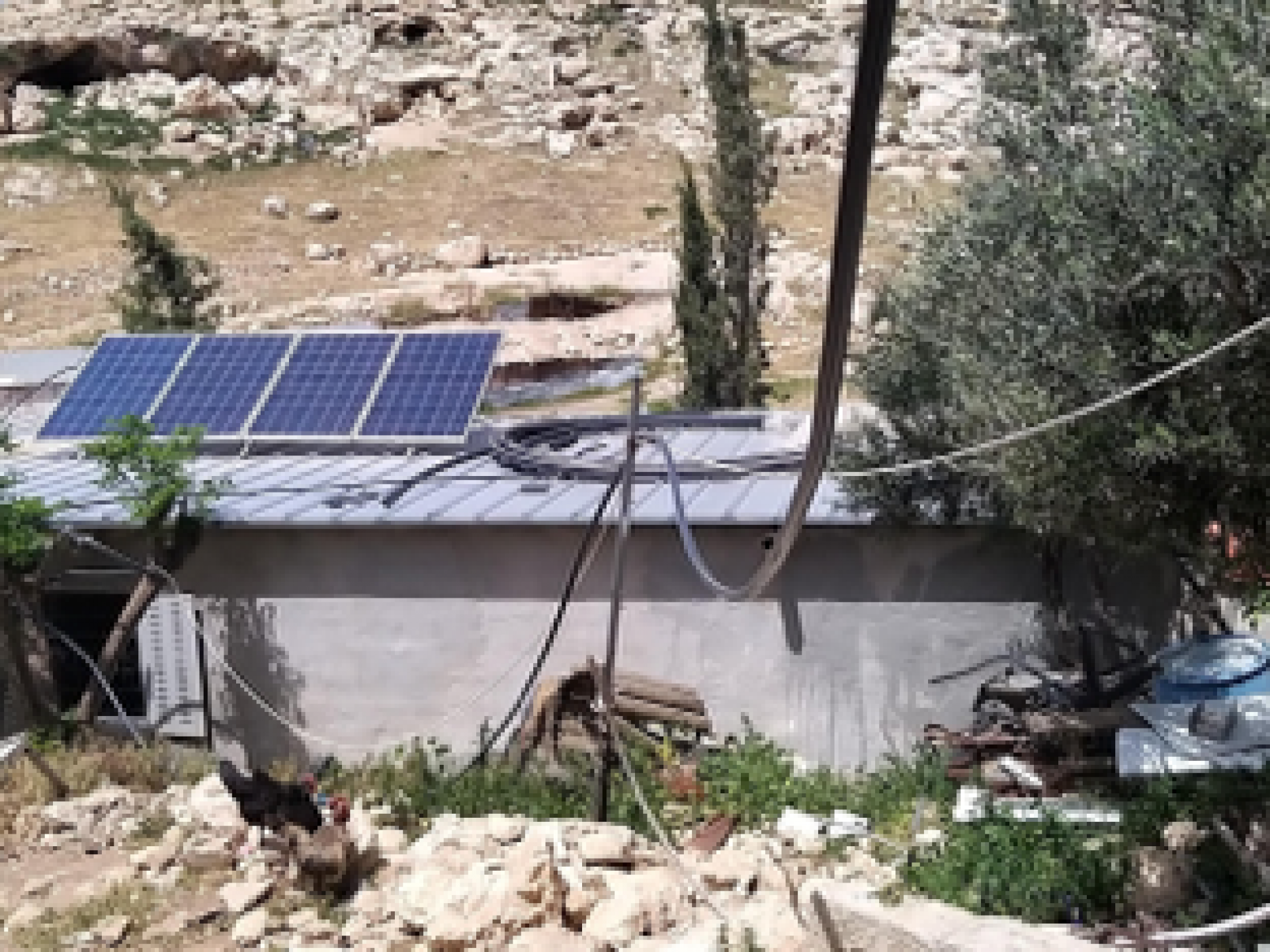South Hebron Hills - life under Apartheid
The day started with good news. Muhammad met Muhammad Abu Arkub, a merchant from Yatta who has been allowed to enter Israel after six months during which he was not allowed because of the Corona. This was the first day on which merchants were allowed to enter Israel and were also vaccinated against Corona at the checkpoint.
Parking on the Palestinian side of the checkpoint was full, but Route 60 was deserted.
We entered Meitarim, the industrial area of the South Hebron Hills local council, to watch a new outpost being built and the person who lives in it is the son of Noam Federman. The outpost, three caravans meanwhile, is on a hill on the left of the picture and a road, apparently occupied by the army, leads to it. On the right is the village of Zanuta. I wonder how they get water and electricity. In Zanuta I know, there is no water and electricity network. We will continue to follow.
We returned to visit Abu Safi in Wadi Rathim. The family actually lives in an enlarged cave, but the paintings of Rania, the so talented young woman, give some extra dimension to the absurd reality in which they live. Eleven people live there. All the big girls work in the pasture, feeding the animals and in the field, even those who are supposed to study, because otherwise there is nothing to live on. The herd of the settler, Israel Kaplan, has also eliminated about ten dunams of pasture that Abu Safi sowed.
The water problem is very troubling to Abu Safi. Every time we came to him he always talked about the water, and indeed his living area is laden with pipes of all kinds. There is plumbing that leads from the black containers to the house and plumbing that leads from the house to the plants around the house. Abu Safi has three containers in each three-cubic-meter container that is sufficient for three days because there are also animals that need water like any living creature. Water is also very expensive because it has to be transported. When the water is brought to him, three cubic meters cost him 150 NIS and when he drives himself with his tractor, the diesel costs him about 100 NIS.
The human right to water is recognized as a fundamental human right in international law.
"The right to water is essential to life with human dignity" [UN Commission on Economic, Social and Cultural Rights].
This is how the living area of Abu Safi is and how the enlightened occupation looks.



